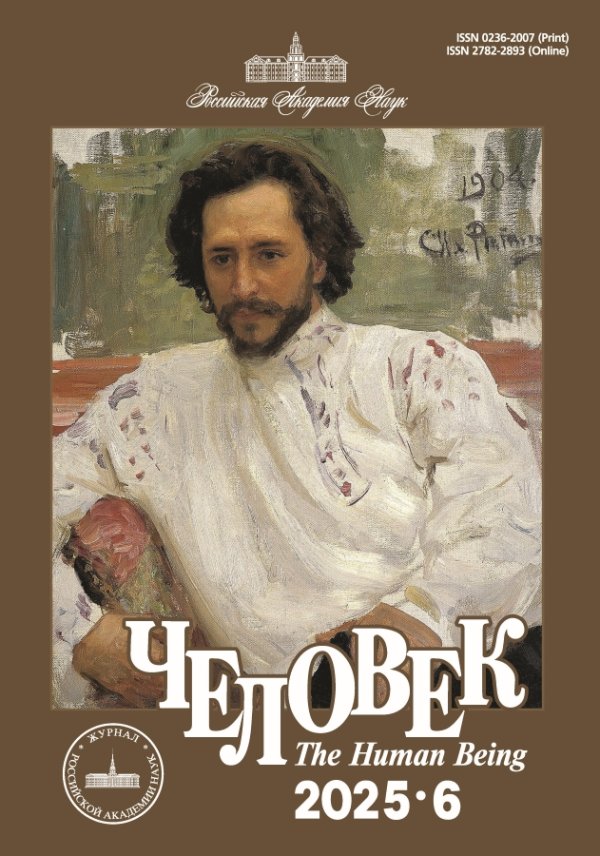The Virtue Ethics Anthropological Turn: Reactualization of Aristotle's Ethics in the Second Half of the 20th Century
- Authors: Platonov R.S.1
-
Affiliations:
- RAS Institute of Philosophy
- Issue: Vol 34, No 6 (2023)
- Pages: 28-47
- Section: The philosophy of the himan being
- URL: https://journals.rcsi.science/0236-2007/article/view/251304
- DOI: https://doi.org/10.31857/S023620070029303-0
- ID: 251304
Full Text
Abstract
Keywords
About the authors
Roman S. Platonov
RAS Institute of Philosophy
ORCID iD: 0000-0003-2762-1328
12/1 Goncharnaya Str., 109240 Moscow, Russian Federation
References
- Агальцев А.М. Аристотель о природе общения // Вестник Томского государственного университета. № 300(1). 2007. С. 39–42.
- Апресян Р.Г. Проблема Другого в философии Аристотеля // Этическая мысль. 2014. № 14. С. 65–85.
- Аристотель. Никомахова этика / Пер. Н.В. Брагинской // Аристотель. Соч.: в 4 т. Т. 4. Москва: Мысль, 1984. С. 53–294.
- Артемьева О.В. Добродетель и ответственность // Проблемы этики. Философско-этический альманах. № 5. 2015. С. 95–108.
- Артемьева О.В. Теоретические основания этики добродетели // Философия и этика. Сборник научных трудов к 70-летию академика РАН А.А.Гусейнова. Москва: Альфа-М, 2009. С. 433–445.
- Гегель Г.В.Ф. Лекции по истории философии. Книга вторая: История греческой философии // Гегель. Соч. в 14 т. Т. 10. Москва: Типография «Печатный двор», 1932.
- Гуторов В.А. Античная социальная утопия: вопросы истории и теории. Ленинград: Издательство Лениниградсткого университета, 1989. 288 с. Gutorov V.A. Antichnaya sotsial'naya utopiya: voprosy istorii i teorii [Ancient social utopia: questions of history and theory]. Leningrad: Leningrad University Publ., 1989.
- Дмитриев Т.А. Аласдер Макинтайр: мораль после добродетели // История философии. № 12. 2005. С. 89–123.
- Хабермас Ю. Между натурализмом и религией. Философские статьи / пер. М.Б. Скуратова. Москва: Весь мир, 2011.
- Хабермас Ю. Моральное сознание и коммуникативное действие / пер. Д.В. Скляднева. Санкт-Петербург: Наука, 2001.
- Эдмондс Д. Убили бы вы толстяка? Задача о вагонетке: что такое хорошо и что такое плохо? / пер. Д. Кралечкина. Москва: Институт Гайдара, 2016.. Edmonds D. Ubili by vy tolstyaka? Zadacha o vagonetke: chto takoe khorosho i chto takoe plokho? [Would you kill a fat man? The trolley problem: what is good and what is bad?], transl. by D. Kralechkin. Moscow: Gaidar Institute Publ., 2016.
- Aristoteles. Die Nikomachische Ethik. Griechisch-Deutsch, Üb. von O. Gigon. Berlin: De Gruyter, 2007.
- Audi R. Epistemic Virtue and Justified Belief. Virtue epistemology. Essays on Epistemic Virtue and Responsibility. Oxford: Oxford University Press, 2001. Р. 82–97.
- Buckle S. Aristotle's Republic or, Why Aristotle's Ethics Is Not Virtue Ethics, Philosophy. 2002. N 77. Р. 565–595.
- Crisp R. Modern Moral Philosophy and the Virtues. How One Should Live? Essays on the Virtues. Oxford: Oxford University Press, 1996. N 9. P. 1–18.
- Foot Ph. Virtues and vices and other essays in moral philosophy. Oxford: Oxford University Press, 2002. Р. 1–18.
- Habermas J. Öffentlicher Raum und politische Öffentlichkeit. Lebensgeschichtliche Wurzeln von zwei Gedankenmotiven. Zwischen Naturalismus und Religion. Philosophische Aufsätze. Frankfurt am Main: Suhrkamp Verlag, 2009. S. 15–26.
- Macintyre A. After Virtue: A Study in Moral Theory. Notre Dame: University of Notre Dame Press, 2007.
- Newman W. L. The Politics of Aristotle. In 4 vol. Vol. 1. Oxford: Clarendon Press, 1887.
- Nussbaum M.C. “Finely Aware and Richly Responsible”: Literature and the Moral Imagination. Love’s Knowledge. Essays on Philosophy and literature. Oxford: Oxford University Press, 1990. P. 148–167.
- Nussbaum M.C. The Discernment of Perception: An Aristotelian Conception of Private and Public Rationality. Love’s Knowledge. Essays on Philosophy and literature. Oxford: Oxford University Press, 1990. P. 54–105.
- Nussbaum M.C. The Fragility of Goodness. Luck and Ethics in Greek Tragedy and Philosophy. Cambridge; New York: Cambridge University Press 2000.
- Nussbaum M.C. Virtue Ethics: a Misleading Category? The Journal of Ethics. 1999. N 3. Р. 163–201.
- Roche T.D. On the Alleged Metaphysical Foundation of Aristotle’s Ethics. Ancient Philosophy. 1988. Vol. 8 (1). P. 49–62.
- Swanson Ju.A., David C.C. Aristotle’s Politics. A Reader’s Guide. London; New York: Continuum, 2009.
- Winter М. Rethinking Virtue Ethics. Heidelberg; London; New York: Springer, 2012. 183 р.










